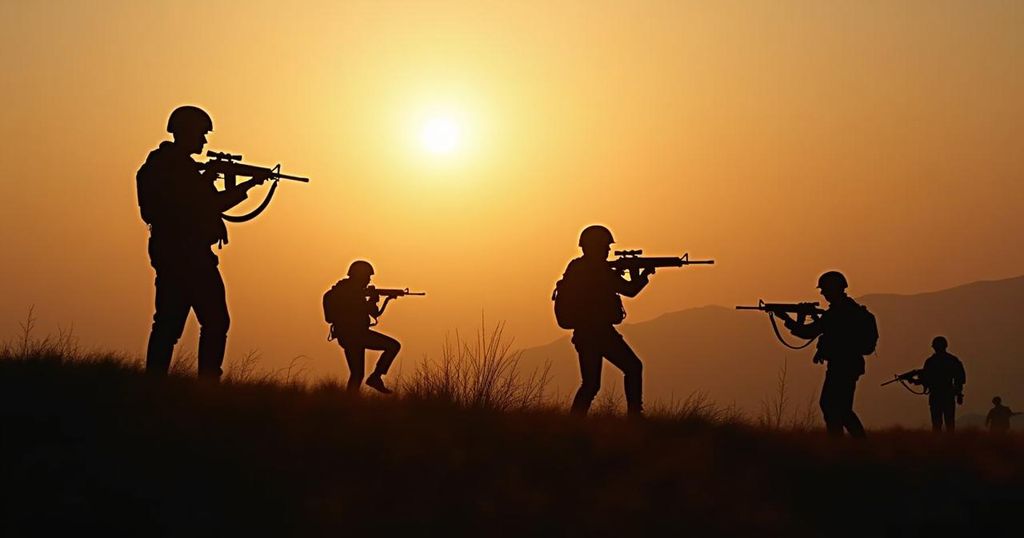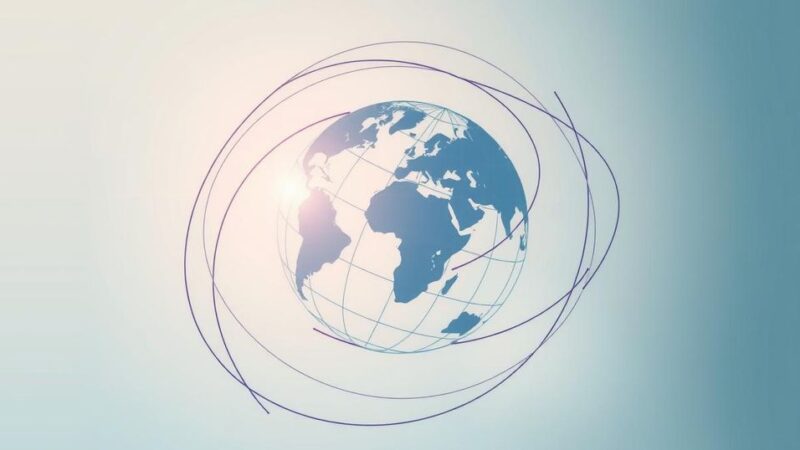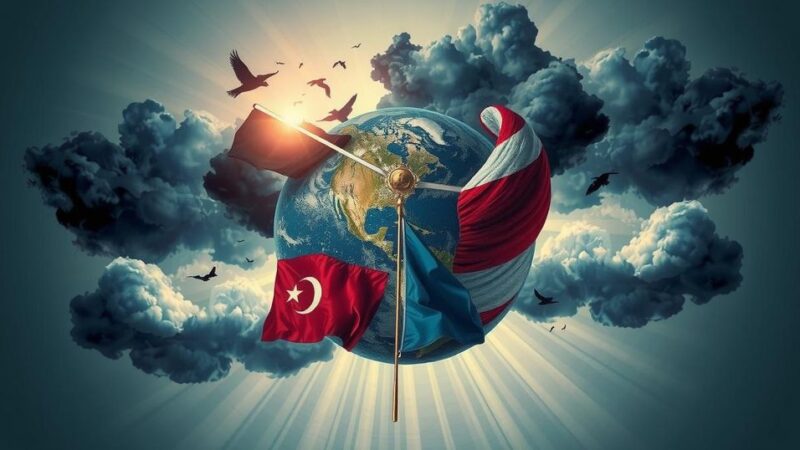Heavy fighting persists at the Israel-Lebanon border, with IDF announcing the deaths of 50 Hezbollah operatives. U.N. spokesperson Jeremy Laurence criticized Israel’s tactics, drawing parallels to its actions in Gaza, where millions face humanitarian crises. The Israel-Gaza war has led to significant destruction and displacement, exacerbated by tensions involving Hezbollah and U.S. military support for Israel.
Intense clashes continue along the Israel-Lebanon border as the Israeli Defense Forces (IDF) report the elimination of at least 50 Hezbollah militants during recent assaults targeting southern Lebanon. U.N. human rights spokesperson Jeremy Laurence has publicly denounced these actions, accusing the IDF of employing tactics akin to those utilized in Gaza, and declared, “the devastation is beyond belief” in both conflict zones. The ongoing Israel-Gaza war, which has stretched for over a year, has exacerbated tensions across the region. The conflict reignited on October 7, when Hamas militants orchestrated a massive cross-border attack, resulting in approximately 1,200 fatalities and the abduction of civilian hostages. This prompted Israel to invoke a military response, declaring war against Hamas and launching a ground offensive that has led to unprecedented displacement since the founding of Israel in 1948. In July 2024, the death of Hamas leader Ismail Haniyeh, attributed to an Israeli attack, marked a significant escalation in hostilities. Amid this turmoil, friction between Israel and Hezbollah, an Iranian-backed militant group, has surged, prompting Israel’s military incursions into southern Lebanon. Israeli airstrikes have intensified, claiming over 1,400 lives, including the death of Hezbollah leader Hasan Nasrallah. The history of violence along the Israel-Lebanon border stretches back to 1948, characterized by a persistent cycle of conflict. Meanwhile, in the Gaza Strip, Israel’s military actions have resulted in extensive devastation, with tens of thousands reported dead and significant portions of the population enduring dire humanitarian conditions. Israel has faced mounting international pressure, particularly from Western allies, to facilitate increased humanitarian aid to the region, yet has largely resisted these demands. United States involvement remains a pivotal element of the situation, as U.S.-Israeli relations endure strain due to disagreements between Israeli Prime Minister Benjamin Netanyahu and several American political figures, including President Biden. Nonetheless, the United States continues to provide Israel with military support and financial aid while consistently blocking or abstaining from U.N. resolutions advocating for cease-fires in the ongoing conflict. The Israeli-Palestinian conflict is rooted in a complex historical backdrop predating Israel’s establishment in 1948. The latest developments underscore the precarious nature of peace in this troubled region, raising urgent questions about the future of stability in both Israel and Lebanon.
The ongoing conflict between Israel and Hamas has its roots in decades of historical animosities, territorial disputes, and nationalistic aspirations. The situation further complicates with the involvement of Hezbollah, a Lebanese militant group supported by Iran. Recent escalations, including cross-border attacks and military responses, highlight the fragile state of affairs, affecting not only the immediate parties but also geopolitical stability throughout the Middle East.
In conclusion, the ongoing violent confrontations between Israeli forces and Hezbollah illustrate the depth of escalation in the Israel-Lebanon conflict amid the broader Israel-Gaza war. The humanitarian implications of these confrontations are severe, with widespread devastation reported in both regions. The role of international stakeholders, particularly the United States, along with the historical complexities of the Israeli-Palestinian conflict, will be crucial in determining future developments. As fights intensify, the urgent need for diplomatic intervention becomes increasingly clear.
Original Source: www.washingtonpost.com






